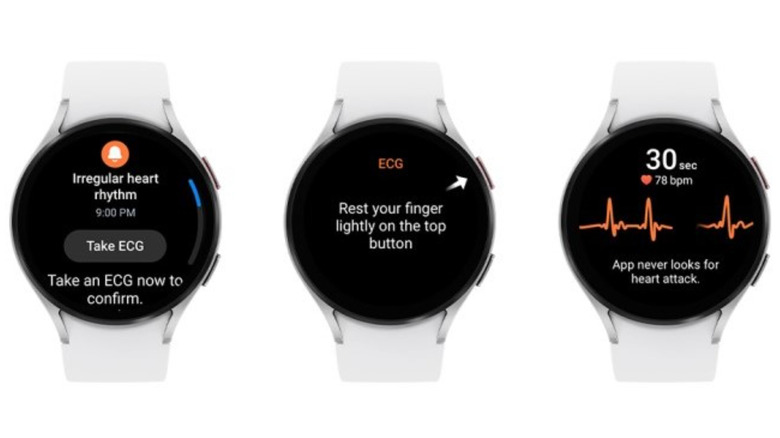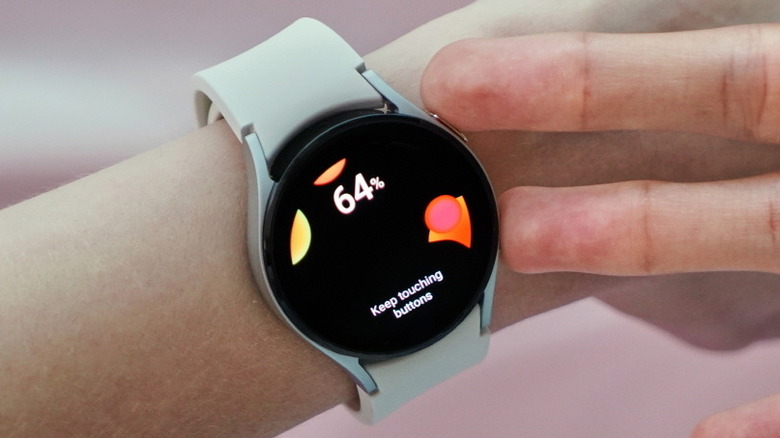A Key Heart Health Check Is Finally Coming To Samsung's Galaxy Watch
We may receive a commission on purchases made from links.
Samsung says it has cleared the necessary regulatory clearance that allows its smartwatches to offer a new way of monitoring heart health. The company has announced that the in-house Irregular Heart Rhythm Notification (IHRN) functionality received the green signal from the United States' Food and Drug Administration (FDA), which means the company can now market it and ship the features with smartwatches sold in the country.
This is a milestone for Samsung in one of its key markets, because the Galaxy Watch series devices often miss out on core features in certain markets due to regulatory hurdles. The new Irregular Heart Rhythm Notification (IHRN) feature will be available with the company's Health Monitor app.
However, don't expect the feature to land on your wrist just yet. Samsung says the heart health trick will make its debut on "the upcoming Galaxy Watch devices later this year," alongside a host of other fitness-centric innovations. In one of the footnotes on its official press release, Samsung says the IRHN feature will only be available on the Galaxy Watch 4 series devices, and models launched after it.
The limitation apparently has to do with older smartwatches lacking the advanced measurement capabilities that Samsung's smartwatch bio-sensing modules offer on its newer smartwatches. Going by the previous launch cadence of Samsung smartwatches, the next-generation Galaxy Watch devices will likely arrive at some point in July or August, which is also when you will get to experience the new IRHN system.
What's IRHN all about?
Samsung says the IHRN system will work in tandem with the existing ECG feature on compatible Galaxy Watch models to actively assess heart activity. Just like Apple's smartwatches, Samsung's offerings also keep a log of irregular heart rhythm events, which could very well be a sign of serious cardiac conditions like atrial fibrillation (AFib). The company says AFib is nothing short of a "warning sign for major cardiovascular issues that can increase the risk of stroke, heart failure and other cardiovascular complications."
At the heart of the IHRN capability on Samsung's smartwatches is the company's BioActive Sensor, which provides access to capabilities like heart rate alarm for abnormally low or high heart activity, and on-demand electrocardiogram (ECG) analysis. Do keep in mind that the latter is not a substitute for medical-grade ECG analysis, and its results must always be followed by consultation with a certified expert before interpreting or taking any medical action.
On the bright side, Samsung must be given credit for arming its smartwatches with another capability that opens a new avenue for heart health monitoring. Plus, it also comes as a sweet surprise that Samsung won't be limiting it to the next-gen smartwatches, and will be later on extending the feature to models that are at least two generations old. However, if you live outside the U.S., the IHRN feature's availability on older models is not guaranteed, and will depend on the local regulatory clearance situation.

